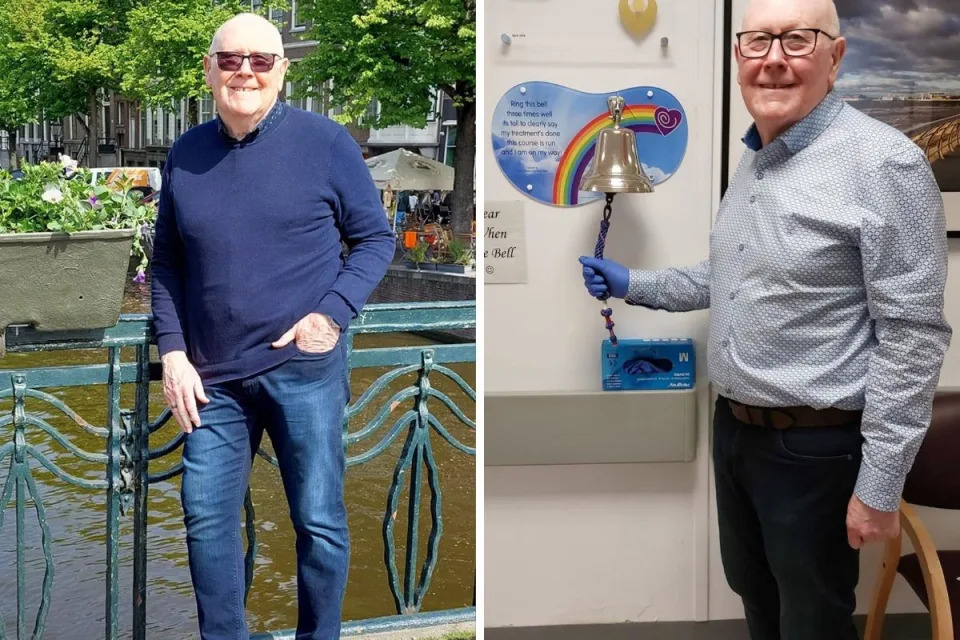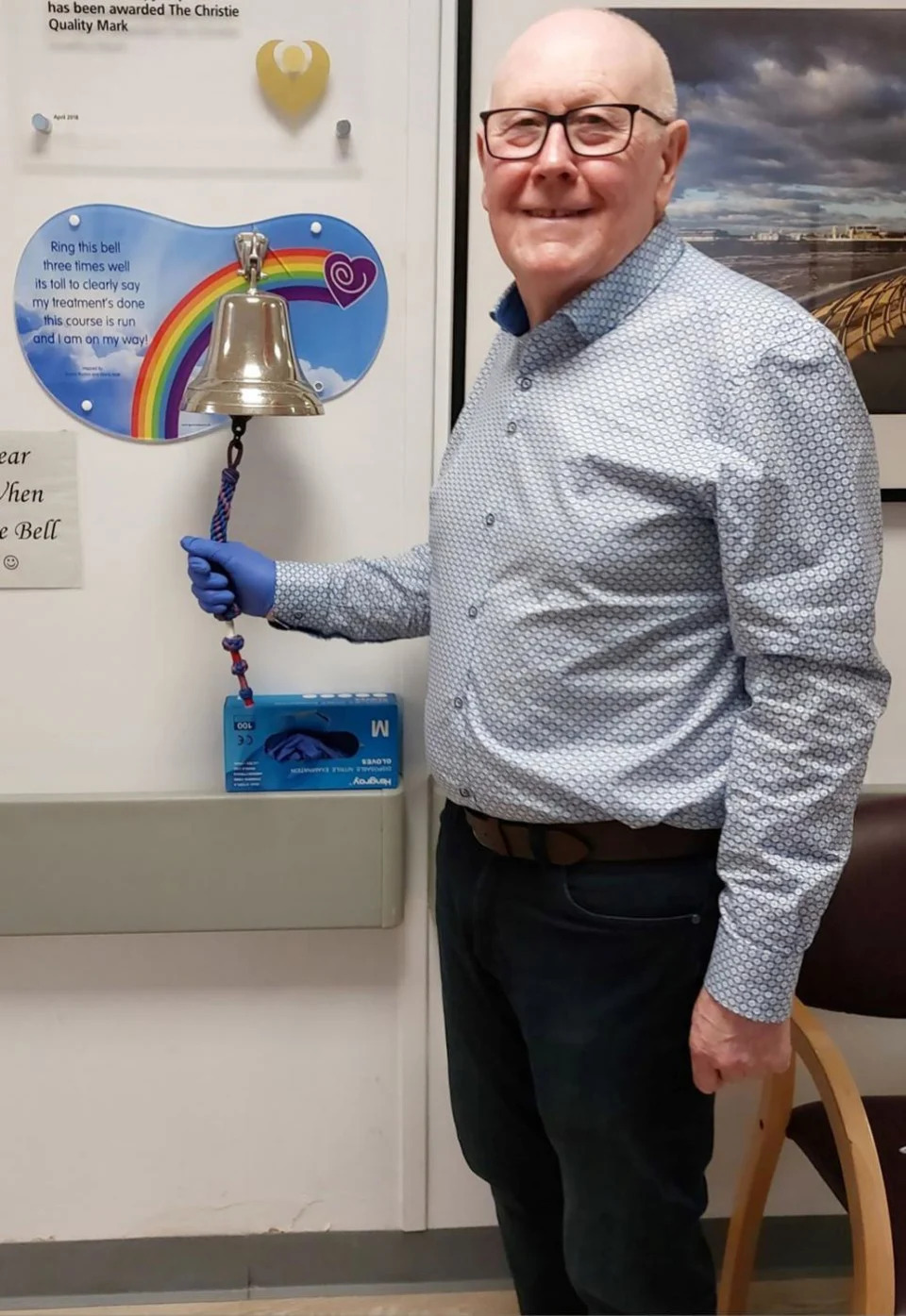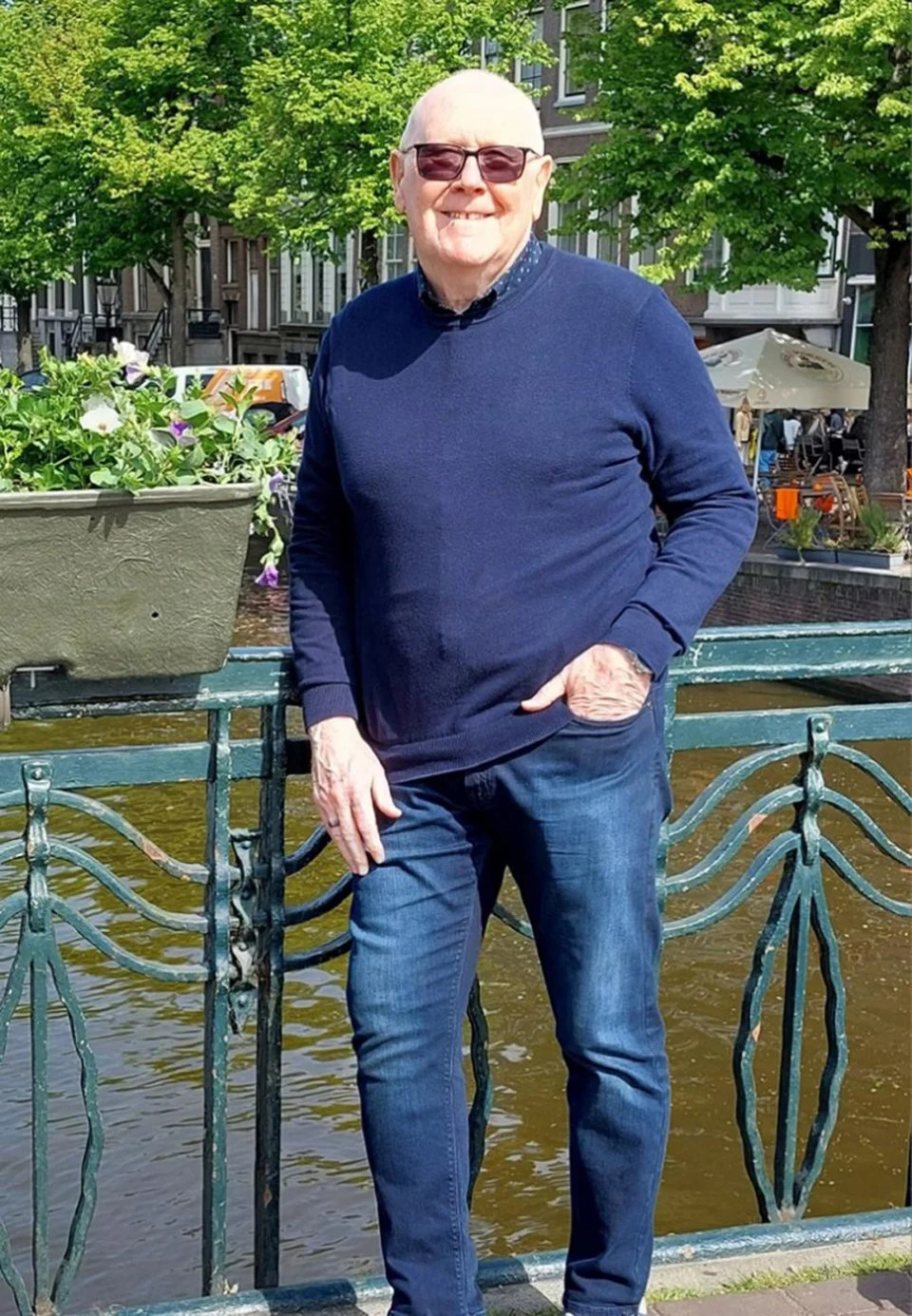A former Bolton Wanderers scout has been spared invasive surgery and given the all-clear thanks to a groundbreaking cancer trial.
Tom Critchley, who carved out a career spotting sports stars and was a corporal in the Royal Engineers, was diagnosed with early stage rectal cancer last April.
He was referred to the Christie NHS Foundation Trust in Manchester and was immediately offered the chance to join the Aphrodite trial.
This trial is investigating whether a higher dose of radiotherapy increases the chance that rectal cancer – a type of bowel cancer – can be treated without resorting to painful surgery.

A former Bolton Wanderers scout has been spared invasive surgery and given the all-clear thanks to a groundbreaking cancer trial.
Tom Critchley, who carved out a career spotting sports stars and was a corporal in the Royal Engineers, was diagnosed with early stage rectal cancer last April.
He was referred to the Christie NHS Foundation Trust in Manchester and was immediately offered the chance to join the Aphrodite trial.
This trial is investigating whether a higher dose of radiotherapy increases the chance that rectal cancer – a type of bowel cancer – can be treated without resorting to painful surgery.

Patients may also avoid the need for a stoma, where an opening in the abdomen is connected to the digestive or urinary system to allow waste to pass out of the body.
Mr Critchley, 76, grandfather-of-three, underwent 28 sessions of radiotherapy on the trial and took a chemotherapy tablet twice a day.

By February this year, the club and bar singer was given the all-clear. His scans continue to show no signs of cancer.
In an interview with the PA news agency, Mr Critchley said he went to his doctor straight away when he developed bowel cancer symptoms. In his case, it was blood on the toilet paper.
“It was a massive shock to be diagnosed with cancer as I’ve always been fit and healthy,” he said. “But I knew I wanted to get treatment right away.”
Mr Critchley lost his wife Eileen to cancer when she was 54. She was diagnosed with pancreatic cancer and died just five weeks later.
“People don’t go on clinical trials because they are frightened of not getting treatment and they think a trial won’t help them,” he told PA.
“But I thought the opposite. I thought the trial could help me but it will also help somebody else.
“Even if it doesn’t work for me, it doesn’t mean it won’t work for somebody else.
“As it happens, the treatment has worked amazingly. There are no signs of cancer – it’s gone completely.”
Mr Critchley, from Astley near Leigh in Greater Manchester, said the treatment was intense and he suffered some side-effects such as peeling skin.
Leave a Reply